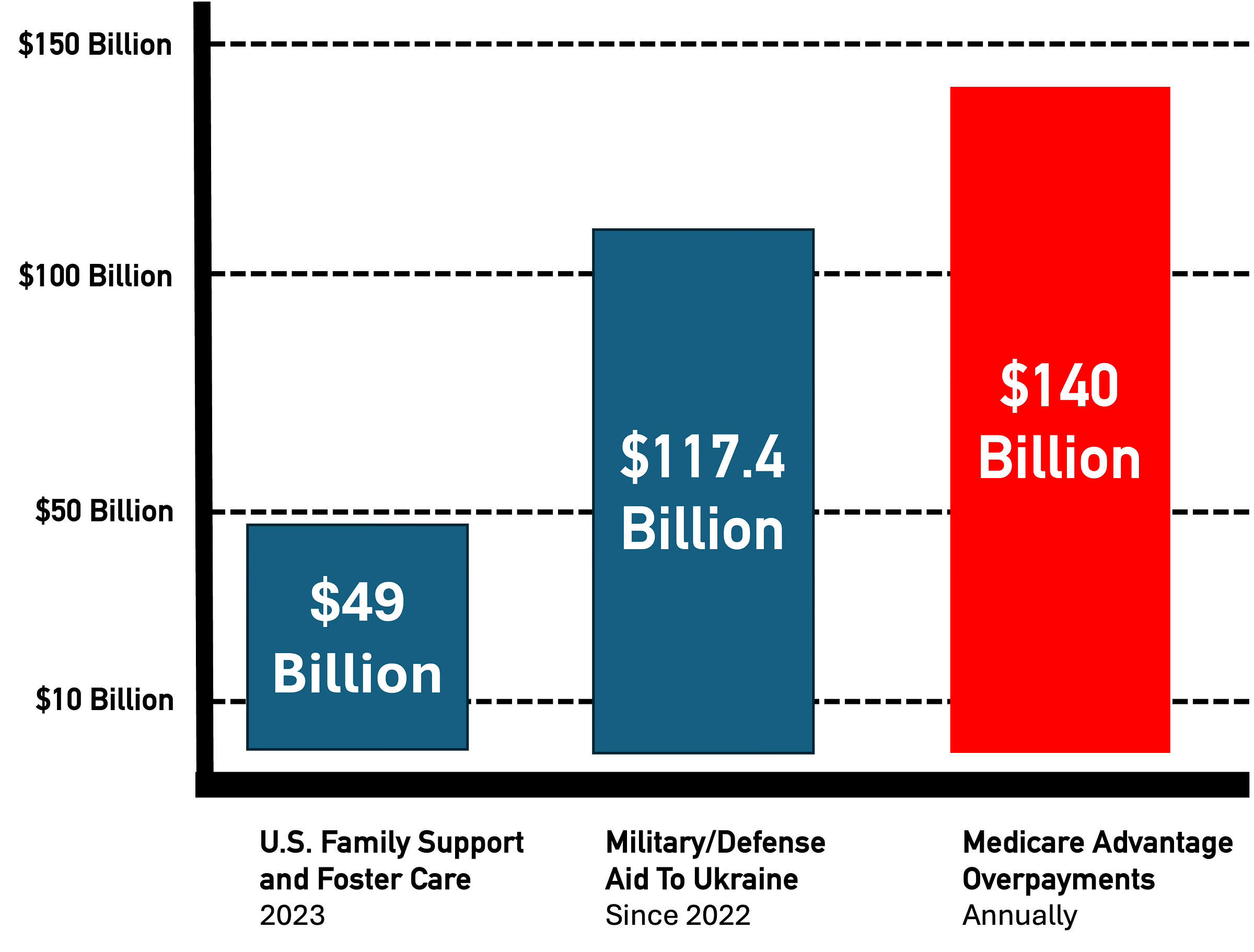Almost exactly fifty-nine years ago, the United States made a historic commitment to its elderly and disabled citizens by enacting Medicare, a federal program that has since provided essential health coverage to millions.
This landmark legislation, signed into law by President Lyndon B. Johnson on July 30, 1965, has ensured that seniors and disabled individuals have access to necessary medical services, regardless of their income. Over the decades, Medicare has grown to cover over 63 million Americans, delivering on its promise to protect vulnerable populations from the financial burdens of health care.
However, Medicare Advantage, the private alternative to traditional Medicare that you see TV ads for from boomer-age icons like JJ Walker, William Shatner and Joe Namath, is siphoning off billions of tax dollars annually and jeopardizing the Medicare Trust Fund.
Whether you’re in a Medicare Advantage plan or not; whether you're Medicare age or not; your tax dollars are still going into the coffers of big health insurers like Humana, UnitedHealth and Aetna.
Through practices such as upcoding — where health insurers exaggerate the severity of patients' conditions to receive higher payments from the government — and denying necessary care, these companies inflate their profits at the expense of beneficiaries and taxpayers.
The subsidies paid to Medicare Advantage plans often exceed the cost of traditional Medicare, diverting critical funds away from the public program. This profiteering not only drains the Trust Fund but also undermines the financial stability and integrity of Medicare, threatening the health and wellbeing of millions of Americans who rely on it.
A recent study by Physicians for a National Health Program (PNHP), an organization sounding the alarm on Medicare Advantage, found that insurers overcharge taxpayers a whopping $140 billion dollars a year – more than the United States has spent on defense aid to Ukraine since the Russian invasion and nearly three times what the U.S. spent on family support and foster care in 2023.
Comparing Costs to U.S. Taxpayers
“These Medicare Advantage plans are stealing from us,” Dr. Diljeet Singh, a gynecologic oncologist and president-elect of PNHP, said. “The thing that makes me insane is that if you actually look at your paycheck, you would see how much money you’re paying to Medicare every two weeks. I say to myself: That’s my money. That I earn working for hours this week and that is now going off to some shady insurance stuff.”
Medicare Advantage doesn’t just waste tax dollars and drain the Medicare Trust Fund, it’s also harmful to seniors.
“I try to help people understand that Medicare Advantage will make it hard for them to get health care at every step of the way if they have a serious health care condition. They have a very good chance of having prior authorizations lead them to getting their care delayed unnecessarily or even just denied for absolutely no reason,” Dr. Singh said.
According to the Kaiser Family Foundation, virtually all private Medicare Advantage enrollees are in plans that require prior authorization and have narrowly defined networks of providers, in contrast to traditional Medicare which only requires beneficiaries to obtain prior authorization for a limited set of services.
“When you’re sick, when somebody’s told you, ‘you might have cancer,’ the last thing you want to do is spend time on the phone with somebody – or not even somebody – with an AI telling you that your thing’s being denied and you have to ‘press three to get in touch with so-and-so,” Dr. Singh said.
Medicare Advantage is neither Medicare nor an advantage.
It is a scam promoted by big health insurance companies hiding behind the name of a trusted program.













Share this post